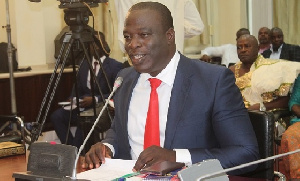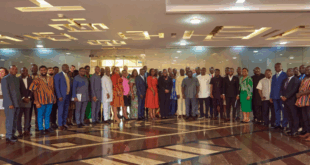Some private employment agencies in Ghana are unhappy with government’s continuous ban on recruitment of Ghanaians to the Gulf States.
Following reports of maltreatment meted out to some Ghanaian workers in the Gulf States, Government in 2017 placed a ban on such recruitment activities as part of efforts to sanitize the sector as reports of Ghanaian workers suffering abuse in these countries increased.
The employment agencies have thus appealed to the government to lift the ban with immediate effect since it is affecting their businesses and their clients.
A member of one of the private employment agencies, Nicholas Ohene Agyekum in a Citi News interview said he believes Government took such decision because of the misconception surrounding such recruitments.
“There is a misconception surrounding the recruitment processes to the Gulf states and a perception that domestic workers are being abused. This needs to be corrected.”
Additionally, another member of an agency engaged in such recruitments, Nana Kwesi Awuku, explained to Citi News that there’s checks and balances within the private employment agencies to prevent such abuses from happening to their clients.
“The process is that recruiting for these big reputable companies, you have to put down a security deposit with these companies just in case candidates that are sent there do not meet the requirements and they can take the money and return them back to Ghana. Once a contract has been drafted, it is sent to the Labour Department and vetted. The department then liaises with other companies and embassies abroad before getting the clearance to start the recruitment. We also invite delegates from these countries to interview candidates themselves.”
“The candidate also goes through immigration and CID clearance at the airport before they are flown out of the country. We also place a security deposit to the labour department which is GHc 25,000. If a candidate encounters any problems abroad then they are retrieved back by us (private employment agency). If we refuse, there’s a sum of money that has been paid to the government to retreat them,” he noted.
The private employment agencies complained that, irrespective of the structures put in place, their clients are still being restrained from travelling to the Gulf States.
“A whole lot is happening at the airport. On the 18th of October 2019, some mechanical engineers and consultants were to travel to a company in Saudi called Madding Gold. They got on the plane and then they were removed by security officers on the Ethiopian Airline. They were seven of them and were not given any explanations. They were told that there’s a ban of manpower to the Gulf”.
Group to protest over ban on recruitment to Gulf States
The Coalition of Licensed Labour Migration Agencies, returnee migrants, laid-off workers and some unemployed youth groups in 2018 threatened to embark on a mammoth protest against the government to register their displeasure over the continuous ban on labour migration to the Gulf States.
Speaking to Citi News, at the time, one of the licensed agent operators, Abubakar Jibril said the suspension had left their clients stranded.
“We are going on a peace walk because we waited for the Minister of Employment and Labour Relations to lift the suspension put on us. It affected totally not us alone, it also affected the medical, airlines and police and then our clients.”
“And now our clients are reporting us to the Police that we took their monies and we don’t want to send them out. That is the problem we are facing. And then we lose the contracts that we’ve signed with our foreign partners,” he added.
Why the ban
The Employment Ministry in June 2017 banned agencies from recruiting Ghanaians for domestic work in Gulf countries.
The sector minister, Mr Ignatius Baffour Awuah said the temporary ban was part of measures to curtail many reported cases of abuse faced by some Ghanaians working in those countries.
As part of measures to implement the ban, the Minister said he instructed the Labour Department not to issue further licences to employment agencies to engage in such businesses.
Mr Baffuor Awuah said many Ghanaians employed as house helps in foreign countries, especially Gulf countries, were subjected to many forms of inhumane treatment, a situation he described as bordering on national security.
Cases The directive came on the heels of many reported cases of abuse of Ghanaian workers, other African and Asian nationals in foreign countries, particularly, the Gulf countries.
In November 2015, a video showing a young Ghanaian woman being subjected to severe sexual assault in one of the Gulf countries went viral on the Internet.
The gruesome video showed two men raining insults on her, while they took turns to sexually abuse her.
‘Sexually abused’ house helps deported from Saudi Arabia
In September 2019, some 22 Ghanaians were deported from Saudi Arabia with harrowing tales of assault and sexual abuse, the Ghana Immigration Service revealed.
The Ghanaians were aged between 21 and 38 years and worked in Saudi Arabia as house helps.
Faced with high unemployment, several African migrants travel to Saudi Arabia with the promise of a good pay. But they are often subjected to deprivation.
The Ghana Immigration Service said in a report in 2015 that over 2,000 young Ghanaian women were stranded in Kuwait, Qatar, Saudi Arabia and Lebanon only after five months of reaching the countries through fake recruitment agencies that promised them lucrative jobs.
Source: citinewsroom.com
 Home Of Ghana News Ghana News, Entertainment And More
Home Of Ghana News Ghana News, Entertainment And More





